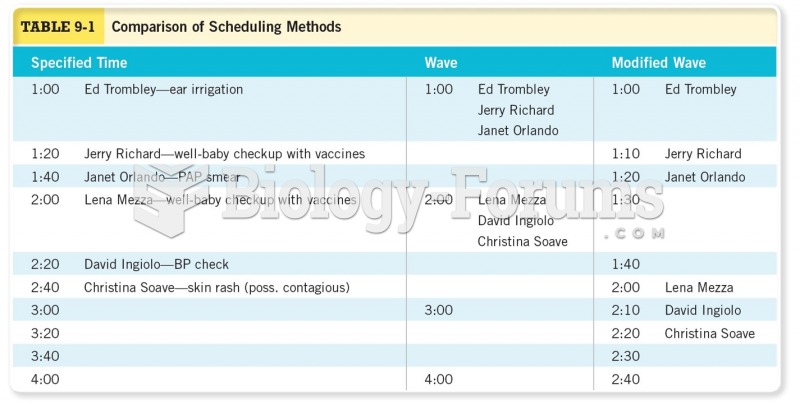|
|
|
Immunoglobulin injections may give short-term protection against, or reduce severity of certain diseases. They help people who have an inherited problem making their own antibodies, or those who are having certain types of cancer treatments.
Approximately 500,000 babies are born each year in the United States to teenage mothers.
Always store hazardous household chemicals in their original containers out of reach of children. These include bleach, paint, strippers and products containing turpentine, garden chemicals, oven cleaners, fondue fuels, nail polish, and nail polish remover.
Drying your hands with a paper towel will reduce the bacterial count on your hands by 45–60%.
People with high total cholesterol have about two times the risk for heart disease as people with ideal levels.







